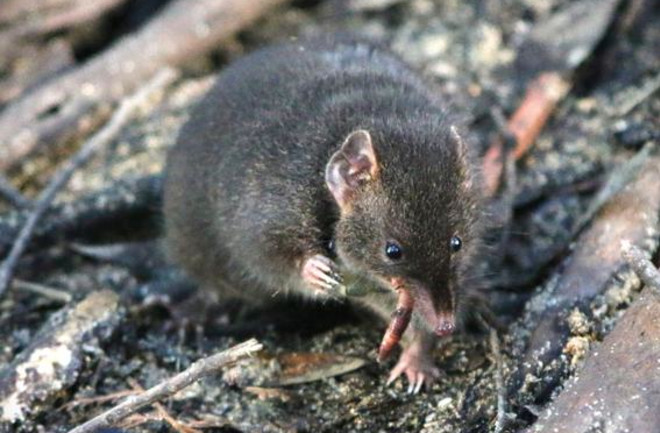While a lack of sleep is known in humans to decrease health, mood, and, well, libido, it might just be an essential ingredient in some animals’ sex lives. In a new paper published in Current Biology, a team uncovered the unorthodox sexual strategies of a plucky, furry creature called the antechinus.
What Is an Antechinus?
For the uninitiated, antechinus are a grouping of mice-like marsupials, which carry 15 equally cute species in their ranks. Like all marsupials, and unlike us placentals, their babies are born even smaller and more helpless than ours and kept in the safety of a pouch.
Of course, before these babies are born, the creatures must mate. And here is where the antechinuses deviate from the norm.
Read More: 10 Remarkable Tricks of Animal Mating
How Do Antechinus Reproduce?
Unlike most other mammals, antechinus males are semelparous, meaning that they only mate once in their entire lives. After this, they die. Semelparity is observed in fish like salmon, and even in more intelligent creatures like octopuses, but rarely in mammals. For reference, us humans are iteroparous, able to reproduce multiple times over the course of our lives.
It’s this unique reproductive history that makes antechinus behavior so intriguing to study. “The males have one shot at fathering offspring during a single 3-week mating period,” said John Lesku, who led the study and works at La Trobe University in Melbourne, Australia, in the press release.
Read More: Mates for Life? The More We Learn About Animal Sex, the Rarer True Monogamy Becomes
The Importance of Sleep and Mating
So, with no tomorrow on the horizon, antechinus truly make sacrifices to achieve reproductive success during their short mating window. Using accelerometer data to measure activity and a cocktail of metabolic tests on antechinus males, the researchers conducted a multi-year study, finding that males will get three hours or less of sleep a night for weeks at a time, a significant drop when compared to their normal dose of short “sleep episodes.”
“In humans and other animals, restricting the normal amount of sleep leads to worse performance while awake, an effect that compounds night after night,” said Erika Zaid, also of La Trobe University, in the press release. “And yet, the antechinus did just that.”
Male dusky antechinuses (Antechinus swainsonii) were far more active at night during their breeding season, and blood work on agile antechinuses (A. agilis) showed an increase in oxalic acid, which other studies have shown to be an indicator of poor sleep.
Zaid also said that the team found it surprising that the males didn’t sacrifice even more sleep during their short mating window, given their imminent death. “In this way, keeping much of their sleep intact reveals the essential functions that sleep serves,” she said in the press release.
Read More: 8 Clever Ways Female Animals Control Reproduction
The Antechinus' Sacrifice for Reproduction
Notably, the females, which can live for up to two years and therefore two breeding cycles, did not lose out on shuteye in the name of mating. The males evidently have a much more stressful experience. They accumulate chemicals called corticosteroids in their body, which suppress the immune system in favor of putting energy into wakefulness and finding females.
And so, the males all tragically die off shortly after their three-week mating period, possibly due to a programmed death response. If a human were to run on the dusky antechinus sleep schedule, they would act heavily intoxicated as the lack of slumber took its toll on the nervous system.
Sleep is widely believed to be essential for most animals, but the exact reasons remain unclear. It may help with neural recovery and metabolic reset, so much so that even jellyfish have been observed entering a sleep-like state.
Somehow, the antechinus can stave off most of these negative effects for weeks. The team hopes to further analyze the exact mechanism by which they cope with their sleepless nights, and how sleep as a whole benefits mammalian physiology.
Read More: Sexual Cannibalism: Why Females Sometimes Eat Their Mates After Sex

